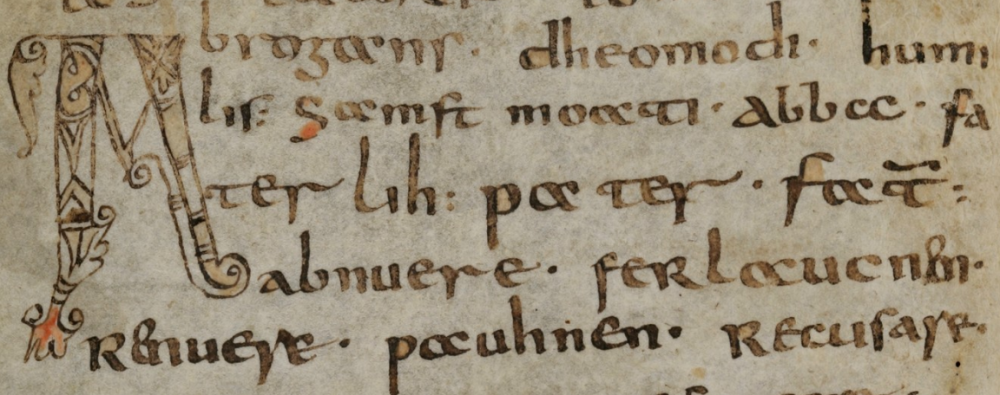Τοῖς θεοῖς τίθει ἅπαντα· πολλάκις μὲν ἐκ κακῶν
ἄνδρας ὀρθοῦσιν μελαίνῃ κειμένους ἐπὶ χθονί,
πολλάκις δ’ ἀνατρέπουσι καὶ μάλ’ εὖ βεβηκότας
ὑπτίους κλίνουσ’· ἔπειτα πολλὰ γίγνεται κακά,
καὶ βίου χρήμῃ πλανᾶται καὶ νόου παρήορος. 5
Catalectic trochaic tetrameter: ¯ ˘ ¯ x ¯ ˘ ¯ x | ¯ ˘ ¯ x ¯ ˘ ¯
1 τίθει (τίθημι 2sg present imperative) here = ‘attribute!’—πολλάκις (adverb) ‘many times, oftentimes’
2 ὀρθοῦσιν (ὀρθόω) ‘set straight, cause to stand upright’
3 ἀνατρέπουσι (ἀνα-τρέπω) ‘overturn, upset’—εὖ βεβηκότας (βαίνω perfect participle) = ‘well situated’; the perfect tense, especially of βαίνω, frequently has “stative” semantics
4 ὑπτίους (ὕπτιος) ‘lying on one’s back’ (cf. Latin supīnus)—κλίνουσ[ι] ‘cause to lean’ = ‘lay’
5 βίου refers here not to biological ‘life’ but to ‘wealth, livelihood,’ or perhaps the ‘lifestyle’ to which the man in question was accustomed; the last lines of the fragment describe a man destroyed mentally and spiritually by misfortune—χρήμῃ (ἡ χρήμη = Att. ἡ χρεία) ‘in want, lacking’—πλανᾶται (πλανῶμαι) ‘wanders’—νόου (= Att. contracted νόου) ‘mind, faculty of thought’ should be taken as a genitive of separation dependent on παρήορος = ‘distraught of one’s senses—παρήορος originally referred to an additional horse attached beside (cf. παρ-αείρω) a team; this horse’s gait tended to be more erratic than the others’ and so the word came to mean ‘reckless, distraught’
Attribute all things to the gods; oftentimes they raise up
out of mean ways men who are lying on the dark earth—
but oftentimes they overturn men who are quite well established
and lay them flat on their backs. Then many unfortunate things happen—
and a man wanders, in want of his livelihood and distraught of his senses. 5
(Image Job by Léon Bonnat)
